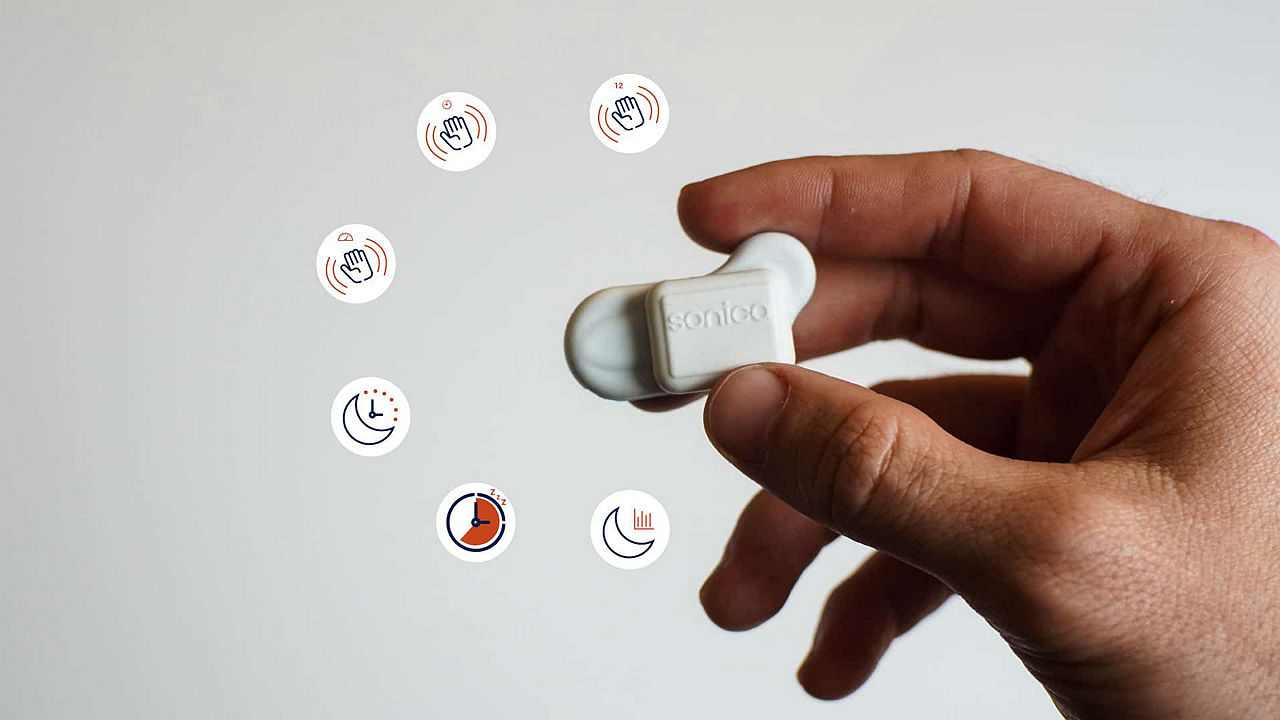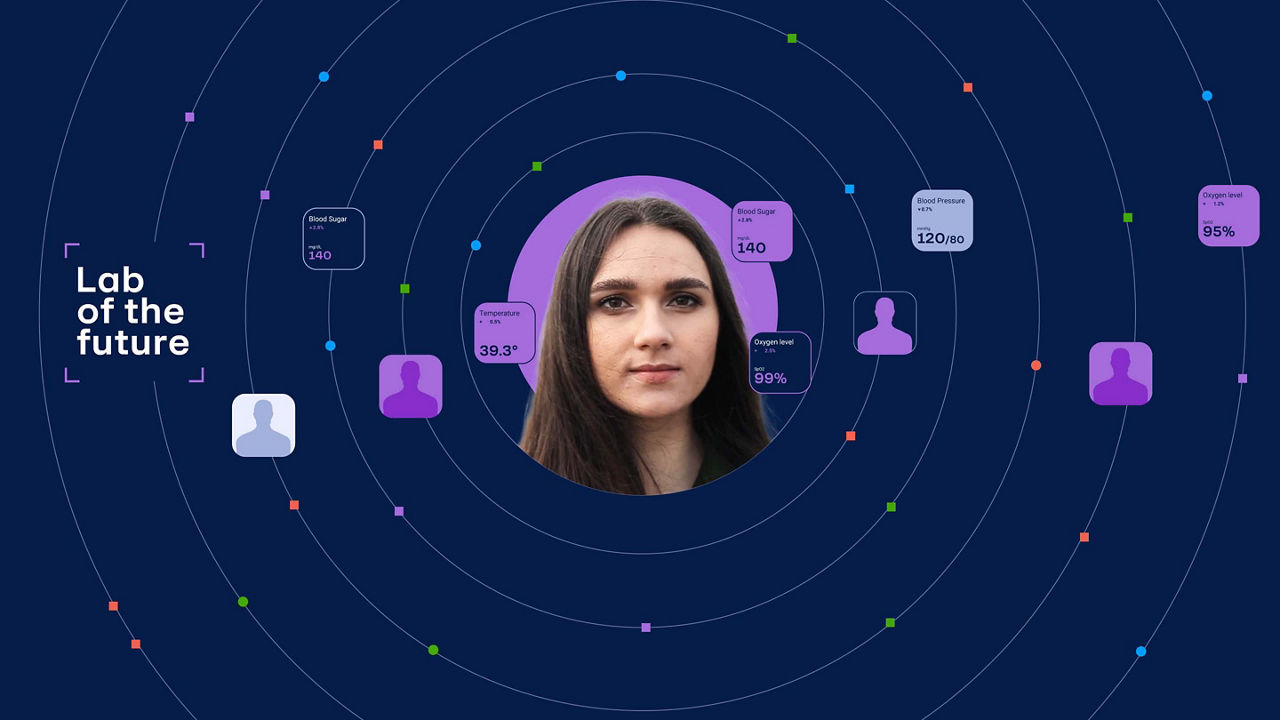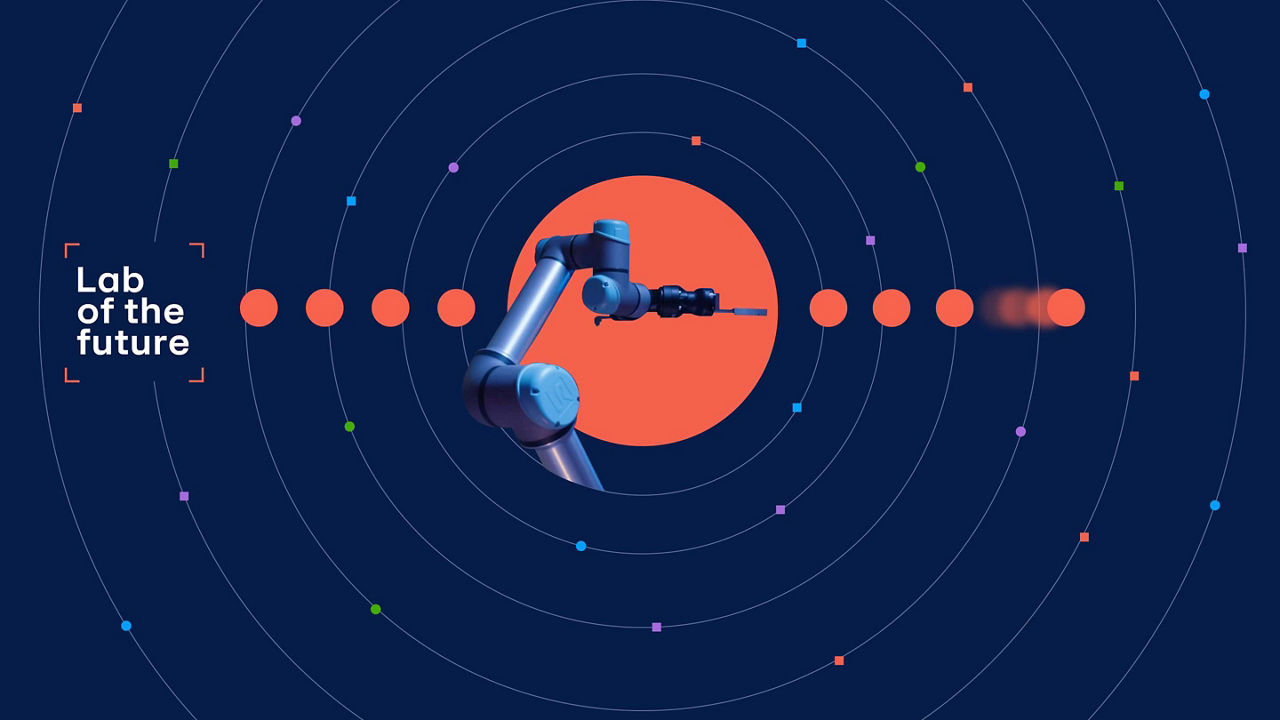Digital Science Lab
-
- Austria
- Belgium (French)
- Belgium (Dutch)
- Bosnia & Herzegovina
- Bulgaria
- Croatia
- Czech Republic
- Denmark
- Finland
- France
- Germany
- Greece
- Hungary
- Ireland
- Italy
- Netherlands
- Norway
- Poland
- Portugal
- Romania
- Russia
- Serbia
- Slovakia
- Slovenia
- Spain
- Sweden
- Switzerland (German)
- Switzerland (French)
- Turkey
- Ukraine
- United Kingdom
-
March 25, 2024 Science
4 Minute Read
Digital Science Lab: Reshaping Clinical Research With Technology
Scientist Michelle Crouthamel describes how her lab integrates biosensors and wearables to bring clearer insights about medicine we’re developing.

Lab of the Future
Digital Science Lab
From psoriasis to spinal arthritis, it can be difficult to determine the effectiveness of medications developed for various medical conditions. That’s why Michelle Crouthamel, head of digital science at AbbVie, focuses on getting clearer insights using technologies like biosensors and wearables.
In this episode, Crouthamel describes how many of the traditional methods used in clinical research are time consuming, logistically challenging, and often fail to paint a complete picture. For example, current clinical assessments for psoriasis rely on patients to remember symptoms, such an itch that occurred during sleep, which can result in recall bias or subjective data. For conditions like spinal arthritis, patients are often required to make several visits to a clinic to track treatment progress.
But what if you can collect this type of information in real-time? What if you can lessen the burden on the patient while increasing the quality and diversity of data? Watch the video to see the possibilities technology can help unlock – and how AbbVie’s Digital Science Lab is driving them.
Imagine a world… where we can use sensors and real-time data to assess a medicine’s impact on pain, cognitive function, or even depression and anxiety. The possibilities are endless.
Head of Digital Science, AbbVie
MICHELLE: Hi, my name is Michelle Crouthamel, head of digital science at AbbVie and I want to tell you about our new lab.
In the world of rapidly evolving science, if you’re simply keeping up, you’re already behind.
Many of the traditional methods used in clinical research are time consuming, … logistically challenging, … and often not as accurate as we’d like.
So, how do we innovatively approach these barriers to pioneer breakthroughs?
At AbbVie, we’re rethinking what’s possible …
By innovatively applying biosensors and wearable technology, we’re gaining clearer insights about the medicines we’re developing so that we can give patients the care they need even faster.
It all centers around real-time data.
With skin conditions like atopic dermatitis and psoriasis, patients can scratch as much as 20 to 30 times an hour throughout the night … severely compromising sleep … and quality of life.
But accurately capturing this kind of data can be difficult.
That’s because current clinical assessments rely on patients to remember their symptoms and figure out how to rate their itch on a numeric scale … leading to recall bias and subjective interpretation.
So, AbbVie’s Digital Science team took up the challenge using something called ADAM.
Clinical trials using ADAM allow us to collect data in real time while reducing the burden on clinical trial participants.
Another breakthrough lies in research for spinal arthritis, which can significantly limit a person’s ability to bend or move, … especially in the mornings.
So, how do we know if that treatment is effective?
Rather than using traditional methods … like a measuring tape … or requiring clinical trial participants to make repeated visits to a clinic to track treatment progress, …
Our Digital Science team developed a digital app that lets individuals capture their range of motion at home and at times when symptoms may be most present.
Data collected through the app gives researchers a better view of the individual’s condition and how the treatment is working…
… it also leads to a more robust and diverse data set, … providing real-world data and evidence our team can use to develop even better treatment options.
As sensors and wearable technologies continue to evolve, we’ve only just begun to realize their potential in clinical research.
Better measurements can help us manage chronic conditions.
Imagine a world … where we can use sensors and real-time data to assess a medicine’s impact on pain, cognitive function, or even depression and anxiety.
The possibilities are endless.
At AbbVie, we’ve taken profound steps to bring life-changing treatments to those who need them most. And we know we’re just getting started.
You may also like
Unless otherwise specified, all product names appearing in this internet site are trademarks owned by or licensed to AbbVie Inc., its subsidiaries or affiliates. No use of any AbbVie trademark, trade name, or trade dress in this site may be made without the prior written authorization of AbbVie Inc., except to identify the product or services of the company.
Copyright © 2024 AbbVie Inc. North Chicago, Illinois, U.S.A.



